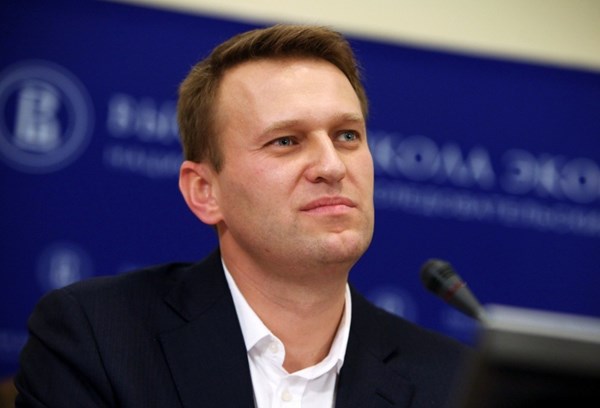Russia opens criminal case against Navalny
The Kremlin is making every effort to ensure that opposition politician Alexei Navalny does not return home. The Investigative Committee of the Russian Federation opened a criminal case against the oppositionist under the article of fraud on a particularly large scale.
The reason for this was voluntary donations of Russians to the Anti-Corruption Foundation header by Navalny, the Fifth Season media support fund, the Foundation for the Organization and Coordination of Citizens' Rights and the SHTAB Foundation for the Protection of Citizens' Rights. According to the investigation, these organizations collected 588 million rubles ($7.87 million) from individuals, of which 356 million ($4.88) Navalny, "acting together with other persons," spent for personal purposes.
According to Navalny, it was not difficult to predict the initiation of a criminal case. "I said in the video that they would try to put me in jail for not dying on that plane, and because I was looking for my killers. Because I proved: Putin is behind everything. He is a thief, ready to kill those who refuse to keep quiet about his theft," the oppositionist wrote on Instagram and promised that he would not be silent.
The day before, the Office of the Federal Penitentiary Service in Moscow said that Navalny violated his probation after he was discharge from Charite Hospital in Berlin and threatened to replace the suspended sentence with a real term.
Alexey Navalny lost consciousness on August 20 on a plane flying from Tomsk to Moscow. After an emergency landing in Omsk, he was hospitalized and two days later taken to the Charite hospital in Berlin for treatment. He was in an induced coma for 19 days. Experts of the Bundeswehr special laboratory at the request of the clinic conducted a toxicological analysis of samples taken from Navalny and found traces of the nerve agent of the Novichok group. Laboratories in Sweden and France, as well as OPCW experts, came to similar conclusions independently.
The Russian authorities deny all accusations of involvement in the assassination attempt on the opposition politician. The EU and the UK imposed sanctions on October 15 for poisoning Navalny. Moscow responded by announcing the introduction of countermeasures against German and French officials. In late November, more than 50 OPCW member states called on Russia to investigate the politician's poisoning.
